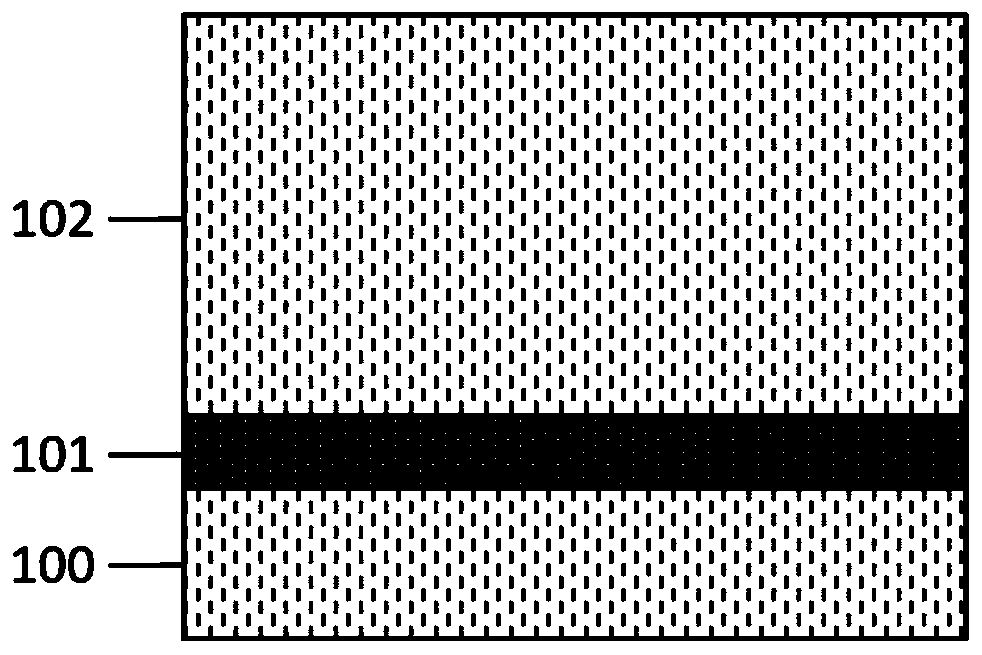Method for performing phase change memory cell integration by using electrochemical deposition
A technology using electrochemical and phase change storage, applied in the direction of electrical components, etc., can solve problems such as blockage of filling methods, achieve the effects of avoiding reaction interruption, improving accuracy and efficiency, and being easy to control
- Summary
- Abstract
- Description
- Claims
- Application Information
AI Technical Summary
Problems solved by technology
Method used
Image
Examples
specific Embodiment approach
[0069] Place the silicon wafer in acetone and alcohol for ultrasonic cleaning for about ten minutes; after the ultrasonic is completed, use a nitrogen gun to blow off the residual liquid on the surface and dry it for use.
[0070] Use magnetron sputtering or electron beam evaporation to evaporate a metal conductive layer such as titanium platinum, nickel gold, etc. on a clean silicon wafer, with a thickness between 10nm and 200nm. Use PECVD or ALD to grow a layer of dense silicon dioxide or alumina. This step involves a high reaction temperature, but there is no functional layer on the sample, which will not affect the performance of the device. The thickness can reach the micron level or more according to the design requirements.
[0071] Combined with photolithography or other mask processes, the pattern is transferred to the sample. Use the etching method to etch small holes. If the depth of subsequent etching is deeper, the mask can be replaced with a mask that is more re...
PUM
| Property | Measurement | Unit |
|---|---|---|
| pore size | aaaaa | aaaaa |
| thickness | aaaaa | aaaaa |
| thickness | aaaaa | aaaaa |
Abstract
Description
Claims
Application Information
 Login to View More
Login to View More - R&D
- Intellectual Property
- Life Sciences
- Materials
- Tech Scout
- Unparalleled Data Quality
- Higher Quality Content
- 60% Fewer Hallucinations
Browse by: Latest US Patents, China's latest patents, Technical Efficacy Thesaurus, Application Domain, Technology Topic, Popular Technical Reports.
© 2025 PatSnap. All rights reserved.Legal|Privacy policy|Modern Slavery Act Transparency Statement|Sitemap|About US| Contact US: help@patsnap.com



